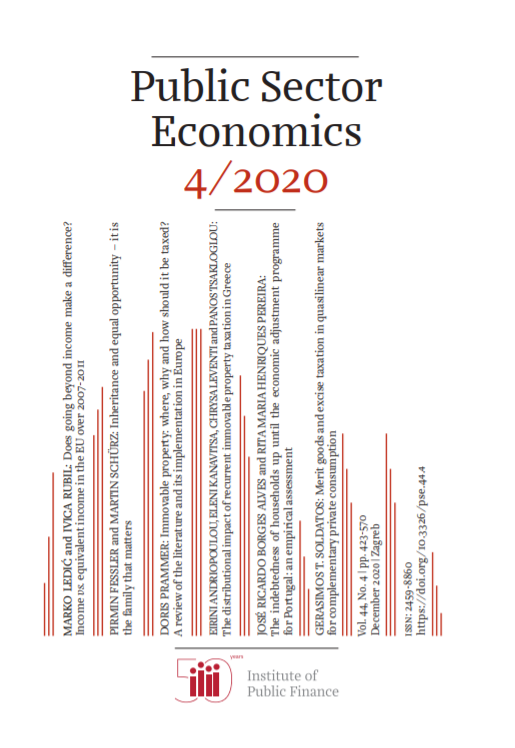Merit goods and excise taxation in quasilinear markets for complementary private consumption
Keywords:
Merit goods, Complementarity, Quasilinear quadratic utility, Excise taxationAbstract
This paper models merit goods such as education and health, in a Lindahl-Foley environment in which public goods may be treated as private ones since merit goods are public goods that could have been provided privately. It does so in terms of a Levitan-Shubik quasilinear quadratic utility from complementary commodities and uniform taxation of non-merit commodities to finance the provision of merit goods. This analytical framework serves best the purpose of characterizing the general equilibrium. Complementarity is found to serve as an engine for increased output after the introduction of taxation, with a higher volume of private goods, lower tax rate, and minimal price for the merit goods at the new equilibrium.
Additional Files
Published
How to Cite
Issue
Section
License
Copyright (c) 2020 Gerasimos Soldatos

This work is licensed under a Creative Commons Attribution-NonCommercial 4.0 International License.









